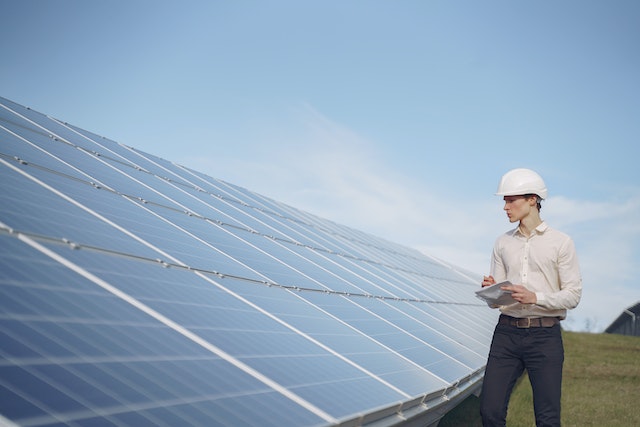
Inverters are an essential part of all solar panel installations. Whether roof- or ground-mounted, solar panels require an inverter. Also known as a photovoltaic (PV) inverter, this critically important device will convert the direct current (DC) output into alternating current (AC). While some solar panel installations use a traditional inverter, though, others use a smart inverter.
The Basics of a Smart Inverter
A smart inverter is a type of solar panel inverter that uses “smart” technology to optimize its performance and operations. Like all inverters, they are designed primarily to convert DC output into AC.
Residential homes and commercial buildings typically run on AC electricity. Solar panels produce DC electricity, which must be converted so that it can power the home or building to which it’s connected. The DC electricity generated by solar panels will travel to an inverter where it’s turned into AC electricity. Smart inverters perform this conversion process while also supporting advanced performance optimizations.
How Smart Inverters Work
Smart inverters work by leveraging software that’s remotely accessible by utility companies. They are commonly used in grid-tied solar panel installations. Grid-tied solar panel installations are connected to a local power grid. They can draw electricity from the power grid when needed, and they can sell excess electricity to the power grid.
Smart inverters feature built-in software. The software will typically allow utility companies to control them remotely. At the same time, the software will send data about the solar panel installation to the appropriate utility company. The utility company can make changes to the solar panel installation remotely, and the utility company will receive data about the solar panel installation’s performance.
Benefits of Using a Smart Inverter
Considering that all inverters are able to convert DC output into AC, you might be wondering what benefits smart inverters offer. The main benefit of using a smart inverter is higher uptime. When there’s a power outage, grid-tied solar panel installations will typically go offline. A smart inverter, though, may keep solar panel installations online during certain events.
Some disruption events are minor and involve nothing more than a frequency fluctuation. Nonetheless, they can take grid-tied solar panel installations offline, which is why some homeowners and business owners now use a smart inverter. Utility companies can control them remotely. If the disruption event is minor, they can activate the smart inverter so that it continues to work. Only smart inverters offer this benefit.

